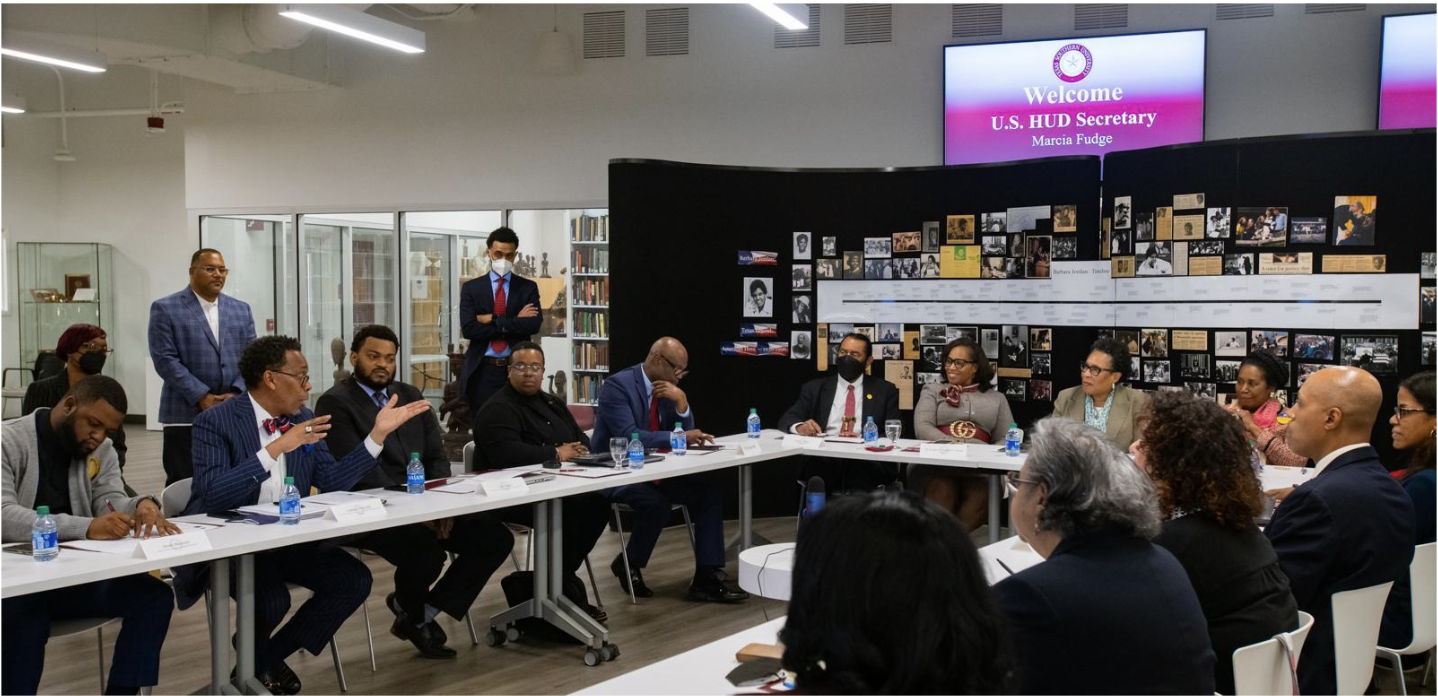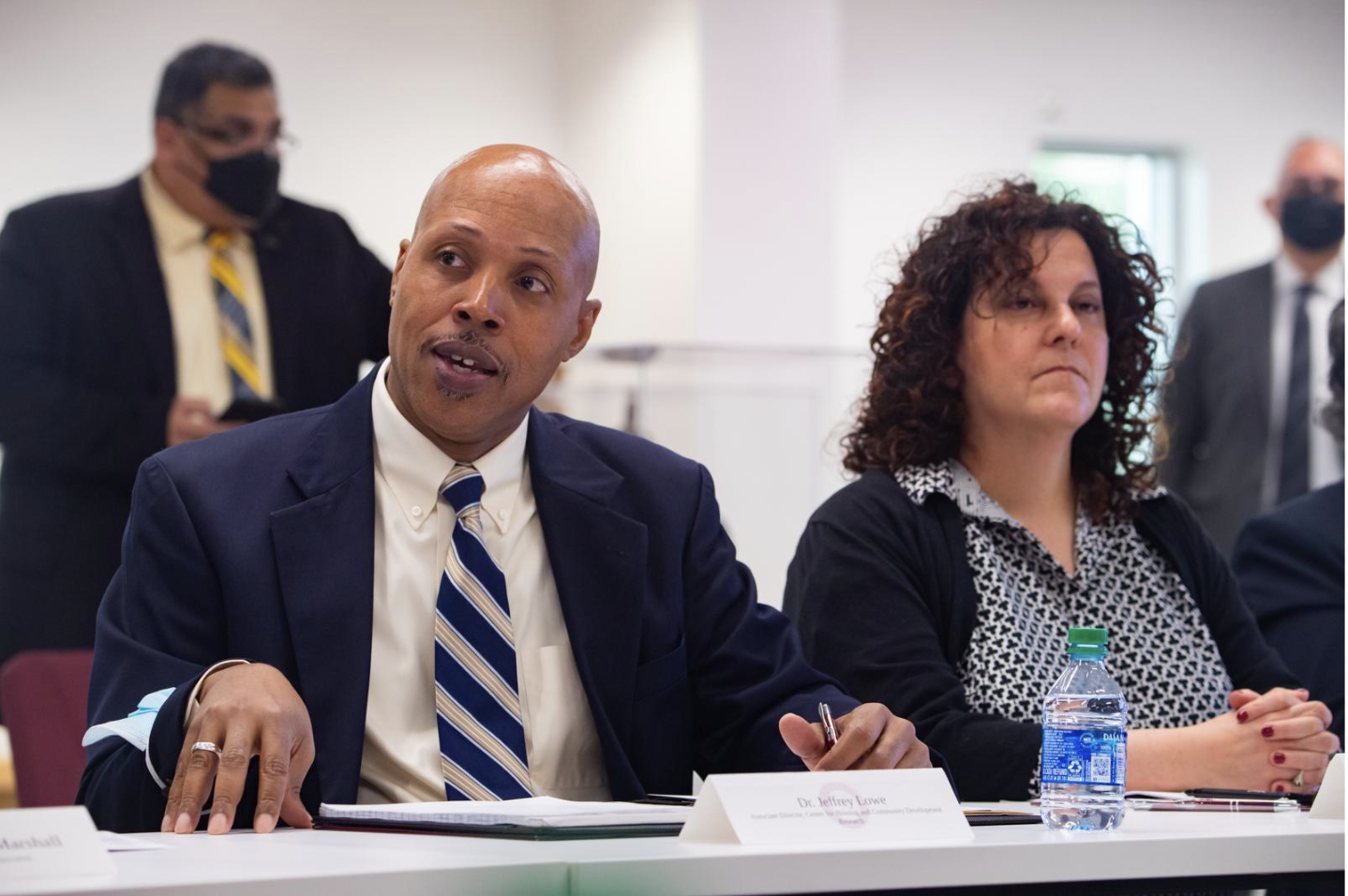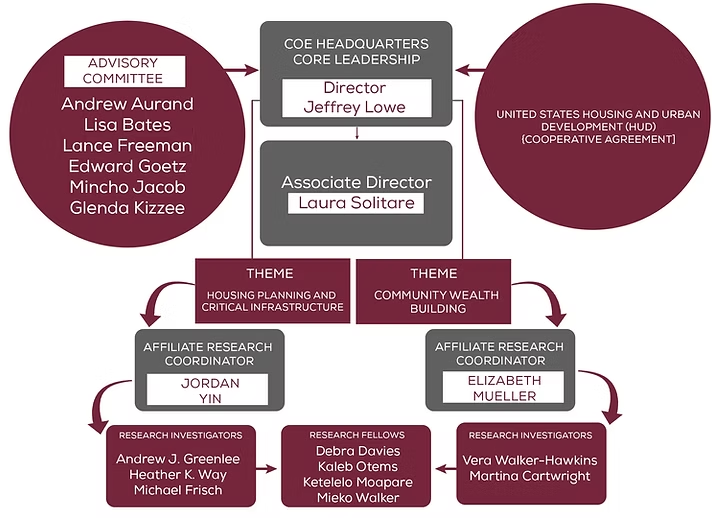Center of Excellence for Housing & Community Development Policy Research
The U.S. Department of Housing and Urban Development (HUD) Centers of Excellence (COE) conduct research on housing and community development, focusing on home ownership, affordable housing, and issues affecting underserved communities. In 2021, HUD launched the Historically Black Colleges and Universities (HBCU) Centers of Excellence with Cooperative Assistance Awards to support research on key topics for underserved communities. Texas Southern University was among the first HBCUs to receive funding and the first to do so for two consecutive years, establishing the Center of Excellence for Housing and Community Development Policy Research (HCDPR).
Research Toolkit Meet Our Team
Research Projects
The overarching question driving the need for HCDPR is how could public policy ensure housing and land (or property) development accrues equitably for all to participate and enjoy a good quality of life as city dwellers, in particular underserved African Americans households and low-income communities of color? To answer this question, investigators will carry out the following seven research projects that emphasize the relationship between housing policies and programs under two thematic and interconnected areas: 1)individual and community wealth building, and housing security and stability; and 2) planning and infrastructure inequity affecting underserved communities.

$45 Million to Combat Housing Crisis
Innovative Policy Research Centers in HBCUs
Dr. Jeffrey Lowe and Dr. Laura Solitare, Director and Associate Director of the TSU Center of Excellence for Housing and Community Development Policy Research, presented at the 2022 National Historically Black Colleges and Universities (HBCU) Week Conference. Their session, "Advancing Research Excellence in Housing and Community Development to Promote Innovative Policymaking," highlighted HUD's 2021 support to establish HBCU Centers of Excellence, awarding $5.5 million to Howard University and Texas Southern University. Along with Howard University leaders, they presented plans for policy research and a toolkit for HBCUs addressing underserved populations' challenges.
Planned by the White House Initiative on HBCUs, the conference occurred September 20-23 in Washington, DC, fostering information exchange, innovations, and networking among educational and governmental stakeholders. This year's theme was "Advancing Educational Equity, Excellence, and Economic Opportunity.

About HCDPR
Established in 2021, the Center of Excellence for Housing and Community Development Policy Research (HCDPR) is a first-generation HBCU Center of Excellence sponsored by the U.S. Department of Housing and Urban Development (HUD). As a free-standing policy research center at Texas Southern University, HCDPR seeks to accomplish the following four-fold mission:- Conduct academic and empirical research in housing and community development useful to HUD.
- Promote discourse among public administrators, non-profit housing and community-based development organizations, scholars, students, and advocates.
- Present data and analysis about underserved African American neighborhoods or communities of color in Texas, the Gulf Coast region, and the Caribbean.
- Develop a research program that advances housing and community development policy research at TSU and prepare future scholars, policy analysts, and decision makers while they contribute to the work of the HCDPR in addressing racial inequities.
HCDPR fulfills this mission by supporting the innovative research projects of seasoned and emerging scholars within and outside of TSU(e.g., University of Florida, University of Illinois-Urbana Champaign, University of Minnesota, University of Missouri-Kansas City, and University of Southern California ) through transdisciplinary collaborations that investigate how public policy ensures housing and land development accrues equitably and that stimulates policy debate. In partnership with three other HBCUs (Alabama A&M University, Florida A&M University, and University of the Virgin Islands) and the University of Texas at Austin, HCDPR faculty conduct research with assistance from graduate and undergraduate students and, thereby, extends the pipeline for conveying future housing and community development researchers and scholars of color.

Our Research Partners and Collaborators
Contact Us
If you would like additional information about HCDPR, please contact us at HCDPR@tsu.edu.
Texas Southern University
Center of Excellence for Housing and Community Development Policy Research
PAB 409A
3100 Cleburne Street
Houston, Texas 77004
Meet our Team